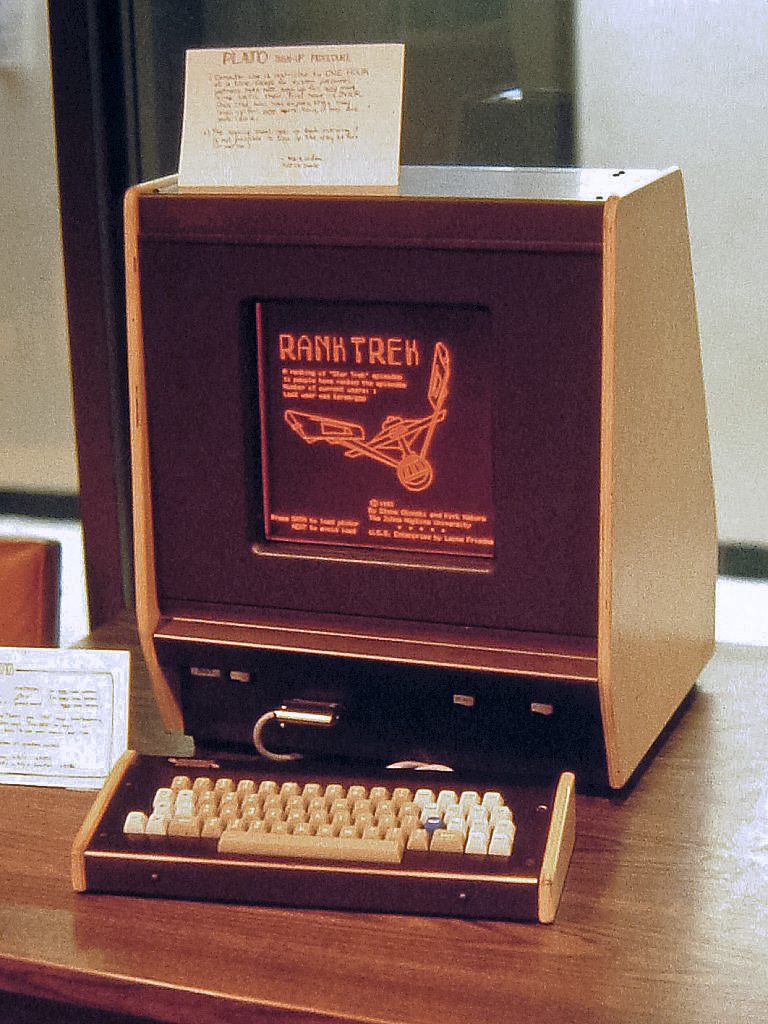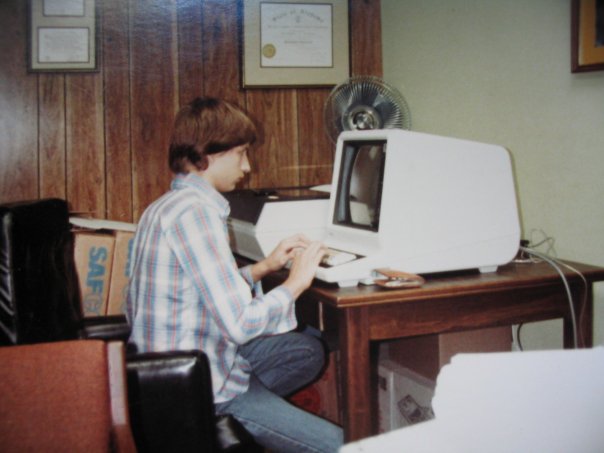The Greatest Computer Network You’ve Never Heard Of
Credit to Author: Ernie Smith| Date: Mon, 13 Nov 2017 14:00:00 +0000
Nearly 60 years ago, in the modest college towns of Urbana and Champaign, Illinois, an educational computer system, built with federal funding acquired amid the space race, took its first formative steps toward existence.
It took more than a decade, and four iterations, for the mainframe machine and its many terminals to reach their full potential—everything had to be be built from scratch.
And when these educational terminals finally became good enough for regular use, the thousands of connected high school and college students immediately used them to program numerous chat apps and games.
Such is the life of the PLATO (Programmed Logic for Automatic Teaching Operations), the first computer-assisted learning system in wide use. The technology—which by its fourth iteration, released in 1972, had become a networked computing platform that relied on a mixture of mainframes, terminals, phone lines, and custom programming tools—clearly inspired what came next.

Some of the most popular pieces of software ever made, including Lotus Notes and Microsoft Flight Simulator, share a direct lineage with the applications produced by students at the University of Illinois Urbana-Champaign (UIUC) and other nearby universities more than 40 years ago. Many more, such as Reddit, Twitter, and AOL, carry clear inspiration, whether their creators know it or not. And this platform generated some of the earliest examples of digital culture, including emoticons and interactive storytelling.
Brian Dear, a onetime PLATO user at the University of Delaware, has spent roughly two decades gathering up every scrap of information available about the system for his new book, The Friendly Orange Glow (Pantheon, $40), released this week.
Dear, who conducted hundreds of interviews for the book, noted that the long development process, led by engineer Donald Bitzer, was necessary because they didn’t have modern advantages like open-source software or cloud computing. All they had at first, really, was an idea and a complex, somewhat rickety machine built by the university called the ILLIAC I, which was later upgraded to another mainframe.
“There was no software. There were no terminals. There was no basically no hardware. They had to literally invent everything from scratch,” Dear noted in a phone interview.

These constraints helped inspire one of PLATO’s most notable inventions, the flat-screen plasma display (which, of course, had a monochrome orange glow to it). The design of the display, which put individual dots on the screen rather than stored characters, helped get around the prohibitively high cost of RAM at the time, which would have pushed up the cost of using a traditional monitor. Another key innovation of the system Dear calls the “fast round trip,” the ability to display information from the network on the screen instantaneously, with no delay, which made the terminals snappy despite slow modem speeds.
These innovations, among others, enabled educators to build graphical, interactive teaching tools, especially as PLATO’s programming languages became more advanced. Students especially took to the machine’s capabilities and pushed its limits, developing the first multi-user dungeons, space-based games, forum software, and even a popular online news outlet that aggregated stories from printed publications. One such game, the Star Trek-themed Empire, is considered one of the first networked multiplayer action games ever produced and frequently pushed the limits of the primitive platform. Eventually, the games gave way to some of the earliest chat programs, like Talkomatic, which helped influence the PLATO platform as a whole. These innovations came about despite the fact that there was no profit motive driving the creation of new apps. It was all for social status and personal learning.
Despite these programs pushing the idea beyond its mission, UIUC’s Computer-based Education Research Laboratory, which developed PLATO, largely took a hands-off approach.

“What you basically saw was the rise of these users turning this platforms into a real community, and taking it in directions that no one—none of the adult supervision, as it were—had anticipated,” Dear explained. “Though, thankfully, the adults noticed that this was all very powerful and compelling and turned a lot of the stuff into, you know, official features of the system.”
You may be wondering: Why am I hearing about this for the first time? And why did Dear have to write a 640-page book to bring this long history to light?
The answer, simply, is that PLATO’s eventual commercialization, at the behest of mainframe supplier and eventual licensee Control Data Corporation, did not go well, partly because its mainframe-based setup was out of date and partly because UIUC’s best innovations, like its plasma screen, didn’t make it into the commercial product—understandable because the PLATO IV terminals cost between $5,000 and $7,000 each in 1972. There were some pockets of success in the corporate world and in academia, but the dream of turning the network into a proto-AOL—pitched by UIUC’s Bitzer when the university first discussed commercializing the technology—never came to pass.
Dear noted that he had enough material for three books worth of PLATO stories, which seems impressive considering the amount of ground he covers here. The book picks up as soon as high schoolers and UIUC students get their fingers on the keyboards, with Dear capturing a forgotten culture full of modern-day parallels, highlighting the ways that some PLATO users, like former Microsoft executive Ray Ozzie, parlayed their experiences into later success. Dear spends a lot of time explaining complex systems from a different era, almost by necessity, but readers willing to dig through the technical will get rewarded with anecdotes that genuinely show how those systems eventually changed the world.
“There’s so much history here and interesting stories about innovation and early examples of pretty much everything we take for granted today, and yet, none of this has ever been known in the mainstream,” Dear added.
It would take another generation for PLATO’s biggest lessons to really take hold in a meaningful way. But let it be known that Illinois had them first.